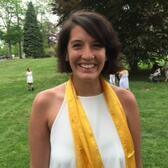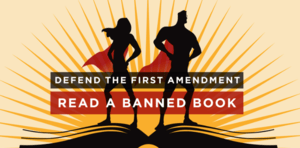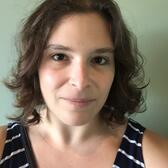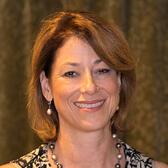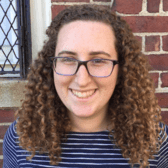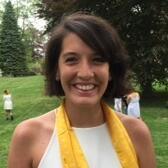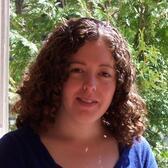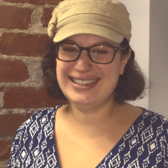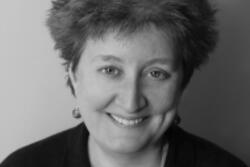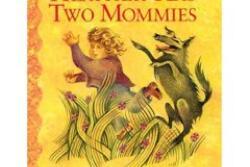JWA Round Up: Banned Books
In our current political climate, the First Amendment can sometimes become a catchphrase for those looking for the license to say hateful things under the guise of patriotism. This shallow understanding of the First Amendment excludes the deeper truth behind the freedom of speech: everyone has a right to information, free of censorship or agenda. Jewish First Amendment advocate Judith Krug and libraries around the country, knew in 1982 when Banned Books Week was established that reading stories can empower, uplift, and radically change how people perceive themselves and others.
As an organization founded on the belief that Jewish women’s lives and stories matter, and that everyone has the right to information, in honor of Banned Books Week 2016, JWA’s staff rounded-up our favorite banned books that were written by, or have shaped, Jewish women and continue to ignite the world.
Larisa: Anne Frank: The Diary of a Young Girl by Anne Frank
It’s hard to encapsulate a book that has been read by millions of people all over the world, and that has so profoundly influenced how the general public learns about, and interprets, the Holocaust. For many, this diary that contains Anne Frank’s perspective on her family’s experience in hiding, is the only Holocaust story they know. What I personally find so remarkable about Anne’s diary is that she preserves her identity as a “normal” teenager throughout. In hiding, where life was so difficult and oppressive, and where she and her family were in constant danger of being discovered, she often talked about things like boys, her developing body (which is why the diary has landed on many banned books lists), and how much her mom annoyed her. How amazing is that? She refused to let her extreme situation take over her life; she didn’t lose who she was. We find out in the diary that Anne intended on publishing a book about her and her family’s experiences in hiding after the war. Perhaps the most heartbreaking part of Anne’s story is that she never got to see the impact her words have had. Anne Frank was one of over a million Jewish children murdered during the Holocaust. When we read Anne’s diary we should mourn the lost potential caused by her untimely death; all indicators suggest that she would’ve led an outstanding adult life; however, we must mourn all of the lost potential, all of the children murdered during the Holocaust. When I read Anne Frank’s diary, this is what I’m reminded of.
Rachel: Are You There, God? It’s Me, Margaret by Judy Blume
I discovered Are You There, God? It’s Me, Margaret in fifth grade. This funny, frank novel about a girl seeking a religious identity while also going through puberty (with all the humiliation and longing that comes with it) was an absolute revelation to me. My mother was too embarrassed to have “The Talk” with me, so by the time I read the book, I had internalized the message that sex, sexuality, and my changing body were taboo subjects. It was my father, not my mother, who first told me about menstruation—that it existed, and that it would happen to me. I was lonely in the beginning stages of my own puberty, so imagine how happy I was to discover Margaret, a girl my age who was similarly eager to get her period and a bra, and worried about boys and Life. I remember thinking that this author, Judy Blume, was the cool mom I would like to have: she wasn’t afraid to talk about these subjects, she understood girls, and most importantly, she treated me (her young reader) as someone whose experience mattered and who was worthy of respect. Unaware that the book would be banned in the outside world, inside my own repressed household I hid it under my mattress, afraid my mother would find it and “ban” it herself. (In retrospect, I think she probably would have been grateful I was learning about these subjects from a reliable, intelligent source!) But to this day, I still feel warmly toward the book and Blume—for helping me feel understood and less alone.
Elena: The Giver by Lois Lowry
When I found The Giver on my reading list for sixth grade, I couldn’t comprehend the importance of reading banned books especially at that time my life. Lois Lowry constructs a world where turning twelve means receiving an assignment for work that will last until one reaches old age. The young protagonist becomes the Receiver of Memory, tasked with learning about the past from the Giver, the previous guardian of memories. This knowledge sets him apart from his peers and family, who do not realize what the ruling council in this society has denied them by eliminating their memories. Whether for encouraging challenges to authority, rebellion against parents, and frank discussion of death, or for the one romantic scene, banning this book uncomfortably echoes the censorship of the society Lowry describes. Reading this on the cusp of twelve years old, I saw myself in the protagonist, listening to my grandparents talk of past times I would never know. Lowry’s book Number the Stars tells the story of Danish assistance to Jews during the Holocaust, but The Giver resonates with Jewish themes as well, inspiring conversations about memory and history at a time of transition between childhood and adulthood. Given that, perhaps it’s no surprise that in an interview Lowry shared the book makes a great gift for b’nei mitzvah!
Bella: The Alice Series by Phyllis Reynolds Naylor
Even though the Alice series were not banned when I was in school, it still had an air of being forbidden. It, along with Are You There God? It’s Me, Margaret, lived in the infamous “Red Dot Section” of my school’s library where only 8th graders and those with special parental permission were allowed to venture. Growing up in a tight-laced Southern community, the conversations Alice and her friends would have (about “the pencil test,” and periods, and how state terrains and your cleavage may have more in common than you think) invited me into an open conversation about puberty and bodies that wasn’t happening in my health class or at home. These books taught me that not only was it okay to transition from being a girl to a young woman, it was also okay (and even preferred) to embrace that change and have a sense of humor about it. No wonder these seemingly lighthearted books were banned! Too many industries and systems of power benefit when girls are not encouraged to laugh about our bodies and find the joy in being women.
Lisa: A Wrinkle in Time by Madeline L'Engle
In Madeline L’Engle’s A Wrinkle in Time, Mrs. Murray sighs over the fact that her brilliant, awkward, short-tempered daughter Meg has gotten into trouble once again for punching a bully and wishes Meg could find “a happy medium,” a balance to keep her centered. Later in the book, Meg and her companions find a literal Happy Medium, a psychic who helps them consider what they’re fighting for and why. That psychic is a big reason why A Wrinkle in Time keeps landing on banned book lists decades after its publication, but it was Meg’s lack of a happy medium that made the biggest impact on me as a kid. Meg’s anger keeps her going when everyone else has given up. It helps her fight for the people she loves and the causes she cares about. Learning that I could be angry and strong, that I could have value without conforming to some image of a “good girl,” profoundly shaped the child I was and the woman I’ve become.
Sarah: Our Bodies, Ourselves by Boston Women's Health Book Collective
When I was 11 years old, my mother not-so-subtly slipped a copy of Our Bodies, Ourselves under my bedroom door with a sticky-note on the front cover which read “Let me know if you have any questions!” As a student in a state where all public schools, including mine, taught “abstinence-only sex education” curricula, it was a real eye opener! The book introduced me to basic information about my body and how it functioned, and more importantly, introduced me to the idea that I had a right to that information. Menstruation, sex and pleasure, abortion – all these formerly taboo words were discussed as if they were normal parts of life that I had the right to make informed decisions about, and something about the book’s calm and authoritative tone helped me believe that it was true. At the time, of course, I had no appreciation for how radical Our Bodies, Ourselves had been when it was first published in 1970, or how brave and visionary the pioneering women’s health educators (several of them Jewish women!) who joined together to create it were. I didn’t know the book had been banned as “pornographic filth.” Today, I am deeply grateful, as a woman who feels empowered in her sexual life and able to make informed healthcare decisions for herself, for the early impact Our Bodies, Ourselves had on me. And as a Jewish educator who teaches and facilitates conversations about the intersection of Jewish law and wisdom and women’s health and sexuality – I now assign it to my students!

